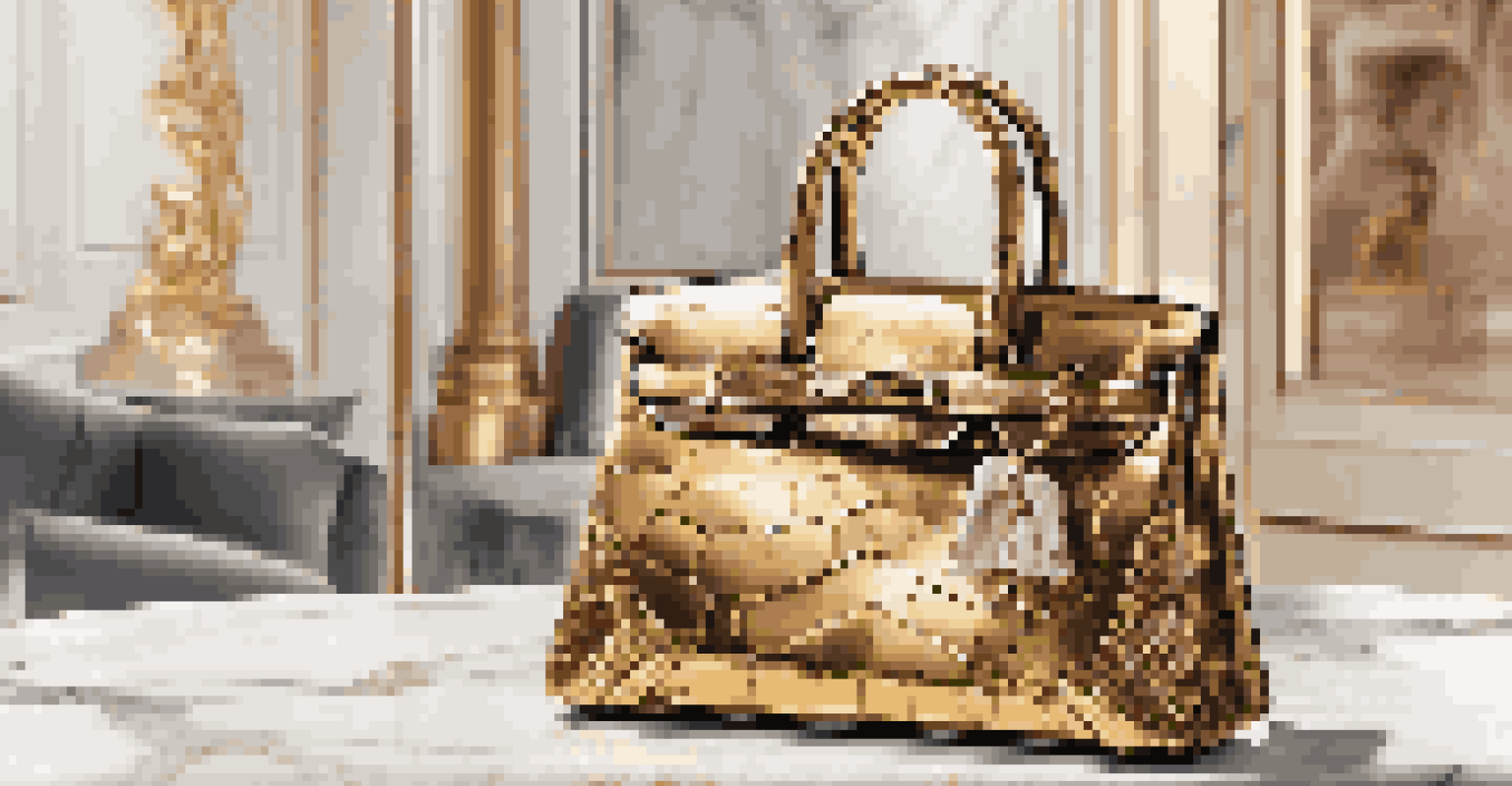The Role of Influencers in Luxury Fashion Show Marketing

Understanding the Influence of Digital Stars
In today’s digital landscape, influencers have become powerful players in marketing. They wield the ability to shape opinions and trends, especially in luxury fashion. By leveraging their massive followings, these influencers can introduce high-end brands to new audiences in a way traditional advertising often can't.
Influencers are the new celebrities, and they hold the power to shape trends and opinions in ways that traditional advertising simply cannot.
This shift is largely due to the authenticity that influencers bring to their interactions. Followers tend to trust influencers more than traditional celebrities, as they often feel a personal connection. This trust translates into higher engagement and, ultimately, increased interest in the luxury brands they promote.
Moreover, influencers are adept at storytelling, using their platforms to craft narratives around luxury products. These stories help to humanize brands, making them relatable and desirable. As a result, luxury fashion shows can benefit from this narrative-driven approach, creating a buzz that transcends the runway.
The Power of Social Media Platforms
Social media platforms have become the lifeblood of influencer marketing, particularly for luxury fashion shows. Platforms like Instagram, TikTok, and YouTube provide visually-driven spaces where influencers can showcase their experiences in real-time. This immediate access to content creates a sense of urgency and excitement that resonates with consumers.

For instance, during a luxury fashion show, influencers often share behind-the-scenes glimpses through stories or live streams. These moments not only engage their followers but also create a sense of exclusivity, as fans feel they are part of an intimate experience. This access can significantly boost brand visibility and desirability.
Influencers Boost Luxury Brands
Influencers leverage their authenticity and storytelling skills to engage audiences and elevate luxury brand visibility.
Additionally, social media allows for immediate feedback and interaction, enabling brands to gauge audience reactions in real-time. This instant connection helps luxury brands adjust their marketing strategies on the fly, ensuring they stay relevant and resonate with their target audience.
Creating Unique Experiences with Influencers
Luxury fashion shows are no longer just about the clothes; they are about the entire experience surrounding the event. Influencers play a crucial role in crafting these experiences, often participating in exclusive invites or unique collaborations. This involvement not only amplifies the brand's message but also enriches the overall narrative of the event.
Authenticity is the key to influencer marketing; without it, the connection between brand and consumer falls flat.
For example, some luxury brands partner with influencers to co-create limited-edition pieces or exclusive merchandise. This collaboration not only generates buzz but also adds a layer of authenticity, as followers see their favorite influencers involved in the creative process. It fosters a deeper connection between the brand and the consumer.
Furthermore, influencers can host live Q&A sessions or virtual meet-and-greets during or after the show, allowing fans to engage directly. These unique experiences enhance the emotional connection between the brand and potential customers, making luxury fashion more accessible and relatable.
The Role of Authenticity in Influencer Marketing
Authenticity is key in the world of influencer marketing, especially in luxury fashion. Consumers today are savvy; they can spot disingenuous endorsements from a mile away. Influencers who genuinely believe in and connect with a brand's ethos are far more effective in promoting luxury products.
When influencers share their honest opinions and experiences with luxury items, it resonates with their audience. This authenticity fosters trust, making followers more likely to engage with the brand. In contrast, if followers sense a lack of sincerity, they may disengage or even develop a negative perception of the brand.
Social Media Drives Engagement
Platforms like Instagram and TikTok create immediate and interactive experiences that enhance consumer connection to luxury fashion.
Thus, luxury brands are increasingly selective about the influencers they partner with. They seek out individuals whose values align with their own, ensuring that the promotional content feels organic and genuine. This strategy not only enhances brand reputation but also builds a loyal customer base.
Influencers as Trendsetters in Fashion
Influencers are not just promoters; they are trendsetters who often dictate what is 'in' and what is 'out' in the fashion world. Their ability to showcase new styles and concepts can significantly impact luxury fashion trends. This trend-setting power is particularly evident during fashion week, where influencers help to amplify emerging styles.
By curating their outfits and sharing them with followers, influencers can create demand for specific looks or pieces. This can lead to a ripple effect, where items showcased during a fashion show quickly sell out due to their endorsement. In this way, influencers act as a bridge between the runway and the consumer.
Moreover, the feedback they provide can guide luxury brands in their designs and marketing strategies. As influencers share their insights and preferences, brands can adapt to meet the evolving tastes of their audience, ensuring they remain relevant in a fast-paced fashion landscape.
Collaborative Campaigns: A Winning Strategy
Collaborative campaigns between luxury brands and influencers have proven to be a winning strategy in the fashion industry. These partnerships allow brands to tap into the influencer's established audience, effectively expanding their reach. Such collaborations can take various forms, from sponsored posts to co-branded products.
For instance, when a luxury brand teams up with a popular influencer for a capsule collection, it not only generates buzz but also creates a sense of urgency among consumers. Limited-edition products often create a 'fear of missing out' (FOMO) effect, driving sales and interest in both the influencer and the brand.
Authenticity Fuels Consumer Trust
Genuine endorsements from influencers foster trust, making followers more likely to engage with luxury brands they believe in.
Additionally, these collaborations often lead to creative content that showcases the brand in an authentic light. This type of marketing feels less like an advertisement and more like a genuine recommendation, which can be far more impactful in driving consumer behavior.
Measuring the Impact of Influencer Partnerships
Understanding the effectiveness of influencer partnerships is crucial for luxury brands. Metrics such as engagement rates, reach, and conversions provide valuable insights into a campaign's success. By analyzing these metrics, brands can gauge how well their influencer collaborations resonate with their target audience.
Moreover, brands can utilize tools and software to track the performance of influencer campaigns over time. This data-driven approach allows them to refine their strategies, ensuring they partner with influencers who align well with their brand values and audience demographics.

Ultimately, measuring the impact of these partnerships helps luxury brands make informed decisions about future collaborations. By continuously assessing and adapting their strategies, they can maximize their marketing efforts and ensure they remain competitive in the ever-evolving fashion landscape.